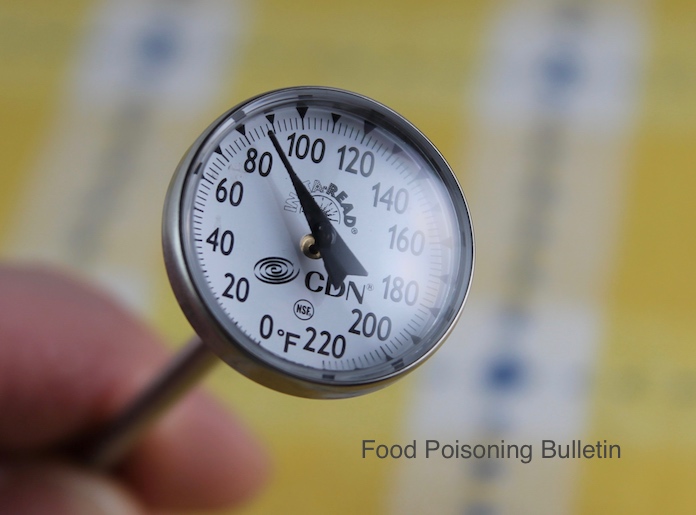The USDA is reminding consumers to wash hands and use a food thermometer this summer to avoid foodborne illness. These rules apply even when you are camping, grilling outdoors, or having a picnic. The USDA has observed, in their test kitchens, that consumers are skipping basic food safety practices, which increases the risk of suffering food poisoning.

USDA Deputy Under Secretary for Food Safety Sandra Eskin said in a statement, “Our research shows that participants were not adequately washing their hands or using a food thermometer. Summer is a time to relax and enjoy delicious meals with friends and family but foodborne pathogens never rest. Following safe food handling practices during this and all other seasons can reduce the risk of you and your loved ones getting sick.”
A multiyear, mixed-method study conducted by FSIS evaluated consumer food handling behaviors. The study used test kitchens, focus groups, and surveys to understand food safety practices.
Inadequate handwashing is a contributing factor in many diseases. Research conducted by the USDA showed that 56% of participants didn’t attempt to wash their hands during meal preparation. This is a major drop in handwashing from research in years past. And about 95% of participants did not wash their hands properly. Most did not rub their hands with soap for at least 20 seconds.
A food thermometer should always be used when checking the internal temperature of meats, egg dishes, poultry, and seafood before eating. In the study, just 55% of participants used a food thermometer to check hamburgers and sausages before eating. Remember that beef, pork, lamb, and veal steaks, chops, and roasts should reach 145°F with a 3 minute rest. Fish should reach 145°F, egg dishes 160°F, and ground beef, pork, and lamb 160°F. All poultry, whether whole or ground, should reach 165°F.
Finally, avoid cross-contamination in the kitchen by keeping raw meat away from produce that is eaten uncooked. Raw meat and poultry can carry pathogens such as Salmonella, E. coli, and Listeria monocytogenes that can make you very sick. Just a drop of raw meat juice can contaminate an entire salad.
In the study, 32% of participants contaminated their plates and cutting boards while preparing food. The researchers found that 28% contaminated their kitchen sinks, 12% contaminated spice containers, and 8% contaminated cupboard handles.




